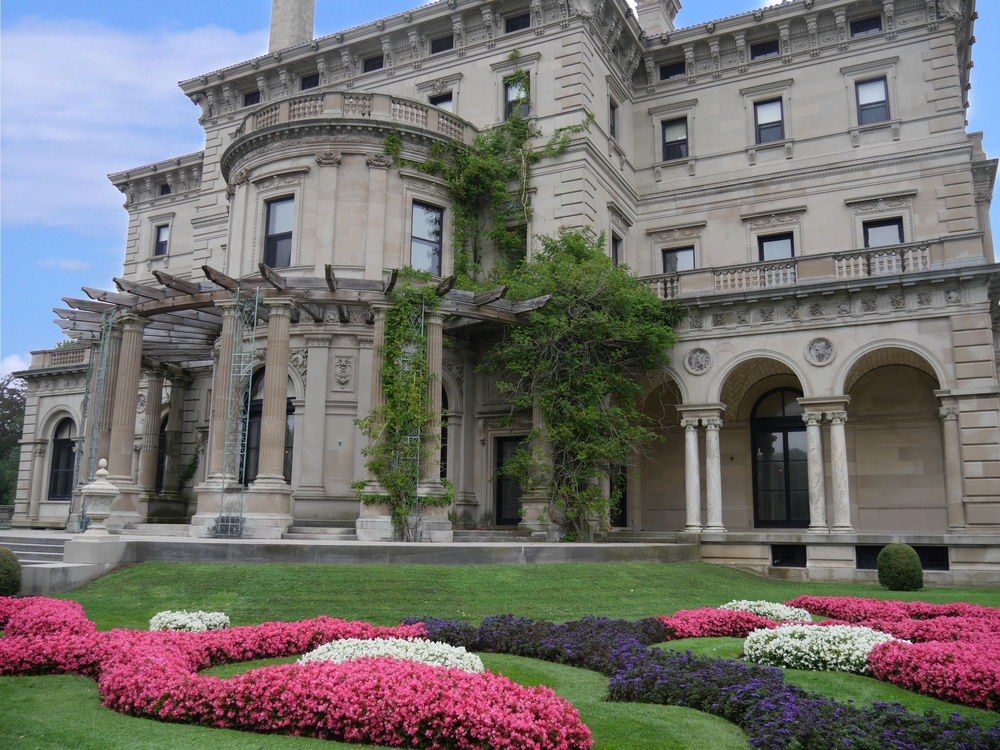

Final in a #ReadWithMe Series
Read the first two parts here and here.
The second half of the book takes us to the Rhode Island Rosewaters, who were swindled out of their fortune by a cunning ancestor of their Indiana cousins. Although Fred Rosewater is an Ivy League graduate, he doesn’t get to slurp from the Money River; his disappointed wife “married Fred because she thought everybody who lived in Pisquontuit and had been to Princeton was rich” (155). She spends her idle and modest days in envy of her idle and rich friend Amanita Buntline. The Buntlines got to slurp from the Money River, so they are now among the rich people who will never have to work. Neither will their kids.
Before the questions, I can’t help myself but take another jab at the academy. Attorney McAllister asks, with a blend of horror and incredulity, “How dare a university teach compassion without teaching history too?” (169). Oh dear, if he could only see today’s post-Marxism, identity politics, and grievance studies!
Lest I spoil the dénouement, I will focus here on questions, rather than commentary.
1- Pisquonquit is “populated by two hundred very wealthy families and by a thousand ordinary families whose breadwinners served, in one way or another, the rich” (134). One need not be a deeply committed Randian to admire the movers who employ those who lack the capital or imagination to drive the economy and create jobs. Without the capital and jobs provided by the 200, where would the 1,000 work? Is there any nobler task than meeting payroll faithfully every two weeks?
2- There is a second unsung hero in Vonnegut’s pages. The idle rich may provide capital for business and funds for charities (a point Vonnegut does not entirely neglect) – but Vonnegut doesn’t have much respect for them. He clearly admires the manual work of Harry Pena and his sons (182). And Fred’s unglamorous sales slog does not enrich him – but it does allow widows and orphans to have basic necessities after the family breadwinner dies (146). Yet Vonnegut also suggests that “real people don’t make their livings that way any more… That’s all over, men working with their hands and backs. They are not needed” (185-186). What do you make of this? Are workers somehow more deserving of esteem than the idle rich, even if they live lives of quiet despair?
3- Where does respect come from – honest toil or good ancestry? Fred Rosewater defends his ancestors: “The Rhode Island Rosewaters have been active, creative people in the past, and will continue to be in the future… Some have had money, and some have not, but, by God, they’ve played their parts in history! No more apologies!” (205). This theme comes to a climax – without spoiling the novel’s plot – with the prediction that human beings will eventually become worthless as producers (264). What do you make of this? What is the source of a person’s worth and the approbation of others? What would Adam Smith have to say?
4- This brings us to the question of helping the poor. We’ve already seen Eliot’s reservations about living as a rich boulevardier, or about the arts elevating souls – versus direct charity. Stewart Buntline worried that his money should be given to the poor, without realizing that money spent or invested also helps the poor. I am reminded here of a story, perhaps apocryphal, of a Peace Corps volunteer in the early 1990s. Assigned to digging latrines for a village in Central America, he soon realized that his work might change the lives of a few dozen people in the village – but a cell phone network would changes the lives of millions throughout the country. So he quit the Peace Corps and went to work for a consulting firm. Using profits over charity, he helped the country develop a wireless network. This meant, of course, not just the opportunity to share cute pictures of pets on Instagram or engage in shallow emoting on Facebook – but online banking, communication, and e-commerce. How does one help the poor? Are there limits to markets?
Vonnegut raises many other questions, but that they are beyond the purview of this short assay. I hope you have enjoyed this delightful and insightful novel as much as I have. After a short break to catch up on other reading, I will surely return to Vonnegut.

READER COMMENTS
Craig
Aug 14 2020 at 7:55pm
I look forward to reading you miss the point of other Vonnegut works! Do Slaughterhouse Five next. I want to read an essay about how Dresden was necessary, actually, if you think about it.
Phil H
Aug 16 2020 at 2:04am
“Is there any nobler task than meeting payroll faithfully every two weeks?”
Yes! Many. For example, working faithfully for those two weeks seems a little bit nobler.
Meeting one’s contractual obligations is a good thing, I completely agree. In fact, it’s what keeps the world turning. But that’s not really what the word “noble” means. Noble is usually used to mean something that goes a bit above and beyond. And meeting your obligations is, by definition, not going above and beyond.
I’m not anti-capitalist, but it’s good to be realistic. The nobility of labour may have been overstated, but overstating the nobility of capital is no better.
Comments are closed.